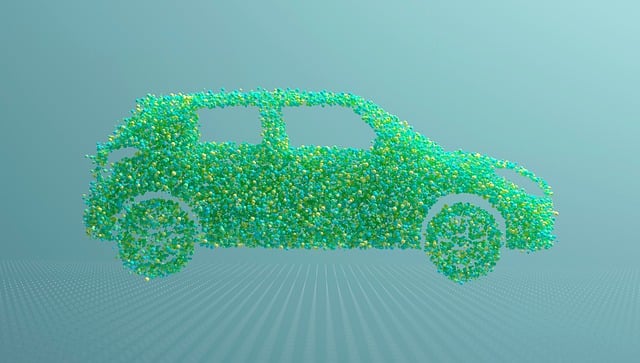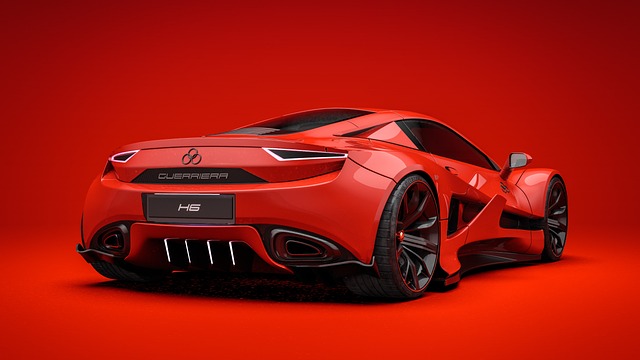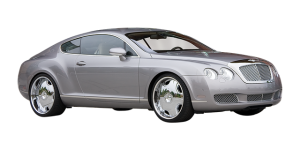Karachi Leading EV Revolution: Trends Shaping Electric Vehicle Adoption
Karachi, Pakistan's bustling metropolis, is witnessing a rapid shift towards electric vehicle (…….

Karachi, Pakistan's bustling metropolis, is witnessing a rapid shift towards electric vehicle (EV) adoption, driven by environmental awareness and government sustainability initiatives. The city's EV market is thriving with diverse models from local and international brands, catering to both personal and commercial use. Supportive policies like tax breaks and subsidies, along with the establishment of charging stations, have made EVs more accessible and appealing to residents. Ambitious targets aim to electrify a significant portion of the local fleet within the next decade, positioning Karachi as a leader in sustainable transportation.
The city of Karachi, a bustling metropolis in Pakistan, is witnessing a quiet revolution as electric vehicle (EV) adoption soars. This trend is not merely a local phenomenon but reflects broader global shifts towards sustainable transportation. In this article, we explore the rising trends in EV adoption in Karachi, focusing on market growth, government initiatives, startup innovations, charging infrastructure expansion, and consumer preferences. By examining these factors, we gain insights into how Karachi is positioning itself as a leading light in Pakistan’s EV landscape.
- Karachi's EV Market: A Growing Momentum
- Government Initiatives Driving Electric Vehicle Adoption in Pakistan
- The Rise of EV Startups and Their Impact on the Karachi Automotive Scene
- Public Charging Infrastructure: Expanding Access for Electric Vehicle Owners in Karachi
- Consumer Preferences Shifting Towards Electric Vehicles: A Case Study of Karachi's Residents
Karachi's EV Market: A Growing Momentum

Karachi, Pakistan’s vibrant metropolis, is witnessing a surge in electric vehicle (EV) adoption, marking a significant shift in its transportation landscape. The city’s EV market is gaining momentum, driven by growing environmental consciousness and government initiatives to promote sustainable mobility. Local automakers and international brands are introducing various electric models, catering to both personal and commercial needs.
With its bustling streets and ever-increasing traffic congestion, Karachi is embracing EVs as a viable solution to reduce air pollution and combat climate change. The city’s EV revolution is not just about adopting new technology; it’s a step towards a greener and more sustainable future. Government policies, tax incentives, and subsidies are encouraging individuals and businesses to make the switch, making electric vehicles increasingly accessible and appealing to Karachiites.
Government Initiatives Driving Electric Vehicle Adoption in Pakistan

In Pakistan, government initiatives are playing a pivotal role in driving the adoption of electric vehicles (EVs), particularly in urban centers like Karachi. The Pakistani government has recognized the environmental and economic benefits of transitioning to EVs and has implemented several policies to encourage this shift. One notable initiative is the introduction of tax incentives and subsidies for EV buyers, making these vehicles more affordable for consumers. Additionally, Karachi has witnessed the establishment of dedicated charging stations along major roads and in residential areas, addressing a key barrier to EV adoption by providing convenient and accessible charging infrastructure.
These efforts have been further strengthened by partnerships between the government and private enterprises, leading to the deployment of electric bus services in Karachi. These buses not only offer cleaner transportation options but also help reduce congestion and air pollution in the city. Moreover, the government has set ambitious targets for EV adoption, aiming to have a significant portion of the local fleet electrified within the next decade. Such proactive measures are expected to accelerate the transition to EVs in Pakistan, making them a viable and attractive choice for Karachiites.
The Rise of EV Startups and Their Impact on the Karachi Automotive Scene

In recent years, the rise of electric vehicle (EV) startups has significantly impacted the automotive landscape in Karachi, Pakistan. These innovative companies are at the forefront of introducing cleaner and more sustainable transportation options to the city’s bustling streets. With a focus on environmental consciousness and technological advancements, EV startups have started to disrupt the traditional car market. Karachi, known for its heavy traffic and air pollution, is witnessing a shift as these new players offer efficient, eco-friendly alternatives.
The emergence of local and international EV startups has brought about a wave of change, encouraging both consumers and businesses to consider electric mobility. These startups are not just selling vehicles; they are educating the public, providing charging infrastructure, and fostering a community around sustainable living. Karachi’s automotive scene is evolving, and the impact of these startups is evident in the growing interest from traditional car manufacturers who are now investing in EV technology to keep up with the changing demands of the market.
Public Charging Infrastructure: Expanding Access for Electric Vehicle Owners in Karachi

In Karachi, the rise of electric vehicles (EVs) has been met with a growing demand for public charging infrastructure. The city is witnessing a strategic push to install more charging stations across residential areas, commercial hubs, and transport corridors, ensuring EV owners have convenient access to power. This expansion is driven by both government initiatives and private investments, aiming to make electric mobility more viable and attractive for Karachiites.
The development of public charging infrastructure in Karachi is pivotal to overcoming range anxiety among EV adopters. By increasing the number and accessibility of charging stations, residents can confidently navigate longer distances without worrying about battery depletion. This shift towards a robust EV charging network bodes well for the city’s environmental goals, as it reduces carbon emissions and contributes to a greener future, making Karachi a leading example in sustainable transportation.
Consumer Preferences Shifting Towards Electric Vehicles: A Case Study of Karachi's Residents

In recent years, a noticeable shift in consumer preferences towards electric vehicles (EVs) has been observed, particularly in urban centers like Karachi. A case study of Karachi’s residents reveals that growing environmental consciousness and concerns over air pollution have significantly influenced their purchasing decisions. The city’s notorious traffic congestion and high fuel costs also play a pivotal role in pushing consumers towards EVs as a more sustainable and cost-effective alternative.
Karachi, being a bustling metropolis, faces unique challenges related to smog and noise pollution due to its heavy reliance on traditional gasoline vehicles. As a result, many residents are embracing the EV revolution, not just for personal transportation but also as a statement against environmental degradation. This shift is evident in the increasing sales of electric cars and scooters, with many Karachiites opting for these vehicles to navigate the city’s labyrinthine streets while contributing to a cleaner, greener environment.
The rising trends in electric vehicle (EV) adoption in Karachi, as evidenced by the market growth, government initiatives, and shifting consumer preferences, signal a promising future for sustainable transportation. The influx of EV startups and expanding public charging infrastructure further reinforce this momentum. As Karachi continues to navigate its automotive scene, these developments underscore the city’s commitment to embracing cleaner, greener mobility solutions, ultimately contributing to a more sustainable Pakistan.





